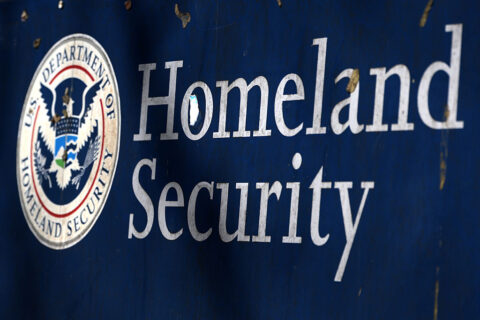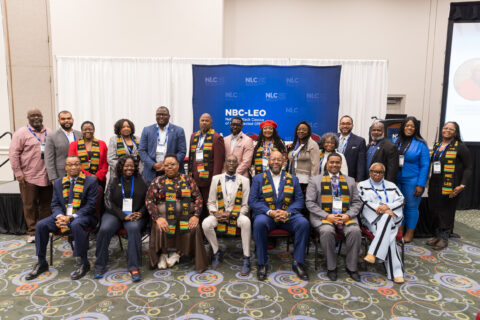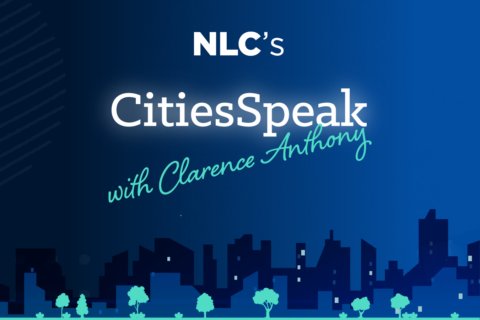By Amanda Karras, Executive Director, International Municipal Lawyers Association, and Stephanie Martinez-Ruckman, Legislative Director, Human Development, National League of Cities
On March 15th, in Lindke v. Freed, the Supreme Court established the test for when local government officials are considered “state actors” for the purposes of the First Amendment when they post on social media. The case is a win for local governments as the test provided by the Supreme Court safeguards the free speech rights of elected officials while balancing the rights of their citizens. More importantly, it is objective and focuses on authority as the test to determine if the official is acting “under the color of state law.”
In cities, towns, and villages across the nation, local elected officials and city staff often rely upon social media platforms both as a formal municipal means of communication as well as an informal way to engage with constituents and personal connections. This court decision allows local leaders to move forward with some clarity as to when the First Amendment applies to their social media accounts.
The facts in this case involve a City Manager, Mr. Freed, who used his Facebook account to post about purely personal items as well as items related to his work as City Manager, such as the City’s COVID-19 policies. He was sued after he deleted comments and blocked someone from his account.
The Court provided guidance and hypotheticals, which may prove instructive to cities as they train staff on the implications of this court ruling. It explained that in cases where someone has the authority to communicate with their residents, for state action to exist and First Amendment liability to attach, “there must be a tie between the official’s authority and the gravamen of the plaintiff’s complaint.” For example, if Mr. Freed had no authority over public health and he was posting about local restaurants with health-code violations and deleted unwanted comments on those posts, he would not be acting with any state authority and would not violate the First Amendment.
More obviously, if a mayor posts something expressly invoking the authority of the City or State, the action takes immediate legal effect and is not otherwise available elsewhere; that post would likely be state action, according to the Court. On the other hand, if the official is merely sharing information that is otherwise publicly available, it is far less likely to be state action.
Public officials may use labels and disclaimers on their social media pages, such as “this is the personal page” of the individual or “the views expressed are strictly my own,” which, according to the Court, would entitle the official to “a heavy (though not irrebuttable) presumption that all of the posts on his page were personal.” However, the Court noted such a disclaimer cannot provide cover to conduct government business on a personal page such as by live streaming a council meeting only on that “personal” page.

The Supreme Court took the case to resolve the lower court split — the Sixth Circuit found in favor of Mr. Freed, concluding the proper test to determine if the government official is engaging in state action is to ask whether he was “performing an actual or apparent duty of his office or if he could not have behaved as he did without the authority of his office” while the Ninth Circuit, in a separate case involving the same question, had held that state action applies to public officials’ social media accounts based on the “appearance and content” of the pages — and provide the test to determine when the First Amendment applies to a government official’s social media account.
In a unanimous decision authored by Justice Barrett, the Supreme Court rejected the Ninth Circuit’s subjective “appearance and content” test and concluded that a government official’s social media posts are “attributable to the State only if the official (1) possessed actual authority to speak on the State’s behalf, and (2) purported to exercise that authority when he spoke on social media.” The Court noted that the “appearance and function of the social-media activity are relevant at the second step, but they cannot make up for a lack of state authority at the first.” The authority must be “real, not a mirage.” The analysis will hinge on substance and not the mere label of the public official, and the Court explains it will require a fact-intensive inquiry.
The Court notes that the line between private and state action can be “difficult to draw.” The difficulty is magnified, the Court explains, because of the nature of some public officials’ work, which can make it seem like “they are always on the clock.” But the Court emphasized that public officials have their own First Amendment rights, including rights to speak about their employment, that they do not relinquish simply by becoming public officials. The burden is on the plaintiff to show the official is “purporting to exercise state authority in specific posts.” Additional factors, such as the use of governmental staff and resources, may help demonstrate the use of that authority.
The Court explains that its test is derived from the text of Section 1983, which provides a cause of action where “[e]very person who, under color of any statute, ordinance, regulation, custom, or usage, of any State deprives someone of a federal constitutional or statutory right.” (internal quotations omitted). Thus, a public official has the authority to speak on behalf of the government if based on a written law, regulation, or ordinance that authorizes that person to make official announcements or if there is a well-established custom such that the “power to do so has become permanent and well settled.” (internal quotations omitted). The Court notes in situations where an account belongs to the government or is passed down to the occupier of the particular office, and those would be government accounts subject to the First Amendment.
As cities, towns, and villages move forward to implement and enforce local policies that reflect this court decision, NLC looks forward to supporting your efforts.
The Local Government Legal Center, of which NLC is a founding member, filed an amicus brief (joined by NLC, IMLA, and NACo) advocating for a clear and easy to apply state action test focused on authority.
NLC is Your Voice in Washington
Learn more about how NLC advocates for, and protects the interests of, cities, towns, and villages.










